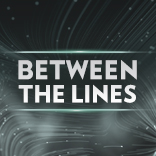Paris: Naomi Osaka’s 2022 French Open is over following a first-round loss. The players remaining in the tournament see and hear products of her frank discussion about anxiety and depression a year ago — from new “quiet rooms” and three on-call psychiatrists at Roland Garros to a broader sense that mental health is a far-less-taboo topic than it once was.
“I remember after I got back from France last year and having photographers follow me even at random places like the grocery store. It felt really odd and a bit overwhelming, until one day a woman came up to me and told me that by speaking up, I helped her son,” Osaka wrote in a recent email to The Associated Press. “In that moment, it did all feel worthwhile.”
In conversations with The AP shortly before or during the French Open, which began Sunday, several professional tennis players credited Osaka with helping bring the subject out of the shadows for their sport and, in concert with the voices of other athletes such as Olympic champion gymnast Simone Biles , helping foster more awareness and concern.
“I definitely think it’s something that is paid attention to way more than it was, at least when I was coming up as a teenager. I don’t even think I knew what it was when back then. And we’re seeing people speak out and normalize it a bit in a way where it’s OK if you’re struggling with something — it doesn’t matter if it’s on the court, off court, whatever,” said Jessica Pegula, a 28-year-old from New York who reached the French Open’s second round Tuesday.
“In tennis, the life we kind of live is not so normal,” she said. “It can lead to a lot of unhealthy habits.”
Osaka was not the first to broach this.
But her place of prominence, as a four-time Grand Slam champion and former No. 1-ranked player, and her decisions to withdraw from Roland Garros, to explain why and to take two mental health breaks last season resonated.
These past few weeks in Europe have been a real character test but I’m glad I came 😂 overall just really happy this year I’m leaving with a completely different emotion than the previous one. Ty Paris ❤️ pic.twitter.com/5AbTZcD6ct
— NaomiOsaka大坂なおみ (@naomiosaka) May 24, 2022
“Anytime an athlete shares their vulnerability and their authenticity, it’s going to affect other athletes in that sport. There’s a relatability,” said Becky Ahlgren Bedics, the vice president of mental health and wellness for the WTA. “So I don’t know that I would attribute it necessarily to one person or one event, but … that makes other folks sit up and notice and kind of say, ‘Well, maybe I should pursue something along those lines, too.’”
Paula Badosa, a 24-year-old from Spain who won Tuesday, has not shied away from talking about her own anxiety.
She, like others, appreciated Osaka’s forthrightness.
“All of us are humans. All of us have to deal with all of these mental struggles. We struggle,” Badosa said. “And it’s important that players like her talk about it.”
Hey kid, you’ve come a long way and even though there’s been some bumps on the road I hope you know you’re doing amazing. pic.twitter.com/l01kNg3sWi
— NaomiOsaka大坂なおみ (@naomiosaka) May 11, 2022
Before Roland Garros last year, Osaka said she didn’t intend to speak to the media . After her first-round victory, she was fined $15,000 for skipping a mandatory news conference (a requirement that has not changed at the French Open or other major championships). Osaka then pulled out of the event .
“I think everybody was surprised and was not ready for that,” said Kildine Chevalier, the French tennis federation’s manager of player services and relations.
“It’s important now we take into consideration those problems,” said Chevalier, a former pro player who has not worked previously in the area of mental health, “not to repeat a similar situation and to prevent (it) instead of acting when it’s already here.”
New amenities for players at this French Open include an 850-square-foot room in the main stadium with 11 beds and noise-reducing headphones, a yoga room with daily workshops on meditation and breathing and telephone hotlines to reach out to psychologists or psychiatrists.
That is separate from what the men’s and women’s tours offer, such as a member of the WTA mental health and wellness team who is on-site at Roland Garros.
Those meetings have been available for years on the women’s tour, but Ahlgren Bedics estimated there has been a 30% increase in sessions for WTA players over the initial months of 2022, compared to the first quarter of 2021.
Rebecca Marino, a former top-40 player from Canada, left the tour for nearly five years because of depression but is back now and qualified for her first French Open since 2011. She notices a difference in the way mental health is discussed these days — in tennis, yes, but also across society — and said she has “a lot of praise” for the WTA’s approach.
“People didn’t really understand what I was going through with my mental health and why I was stepping away from the sport,” Marino said. “Now we have a lot more athletes who are discussing the importance of mental health in their careers. It’s really opened up the conversation to a lot more people and it’s created more positive conversation, which I think is really wonderful and I’m glad that that’s starting to happen.”
Still, Frances Tiafoe, a 24-year-old from Maryland who considers Osaka a close friend, noted there is work to be done.
“Sometimes, you don’t want to get vulnerable with each other,” he said Tuesday after a victory. “If you complain, then you’re called ‘soft.’ But when you think about it, you’re actually strong. Sometimes people really are going through a lot on the inside, but they hide it and try to put up a facade like they’re super tough. Sometimes you just need to verbalize it. You need a safe space to be heard. With Naomi, she was going through some stuff at that moment.”
Osaka, a 23-year-old who was born in Japan and now lives in the United States, has remained a part of the conversation in a public way. She talked about speaking to a therapist. She became an investor with a role of chief community health advocate for Modern Health, which calls itself a “global workplace mental health and wellness platform.”
She records meditations the company is making available to the public, and CEO and founder Alyson Watson said Osaka “can play such a big role in destigmatizing mental health” and “really pave the way, not only for athletes, but for other people, to speak up about struggling, as well.”
In her email to The AP, Osaka wrote about keeping quiet about her feelings growing up, about moving past that and, with regard to the 2021 French Open, added: “This year, I am in a different state, for sure.”
Read all the Latest News ****, Trending News ****, Cricket News ****, Bollywood News ****, India News and Entertainment News here. Follow us on Facebook ****, Twitter and Instagram ****.




